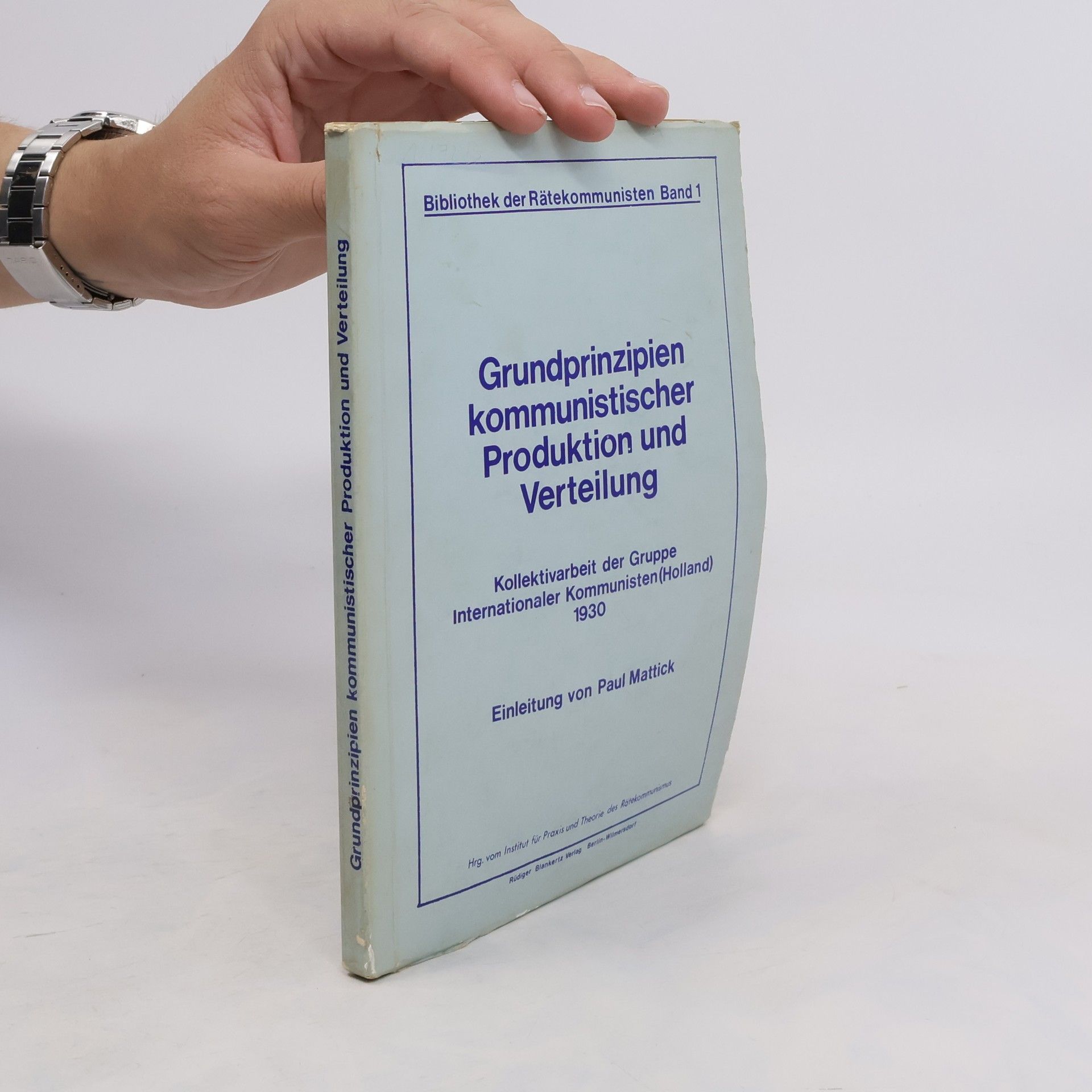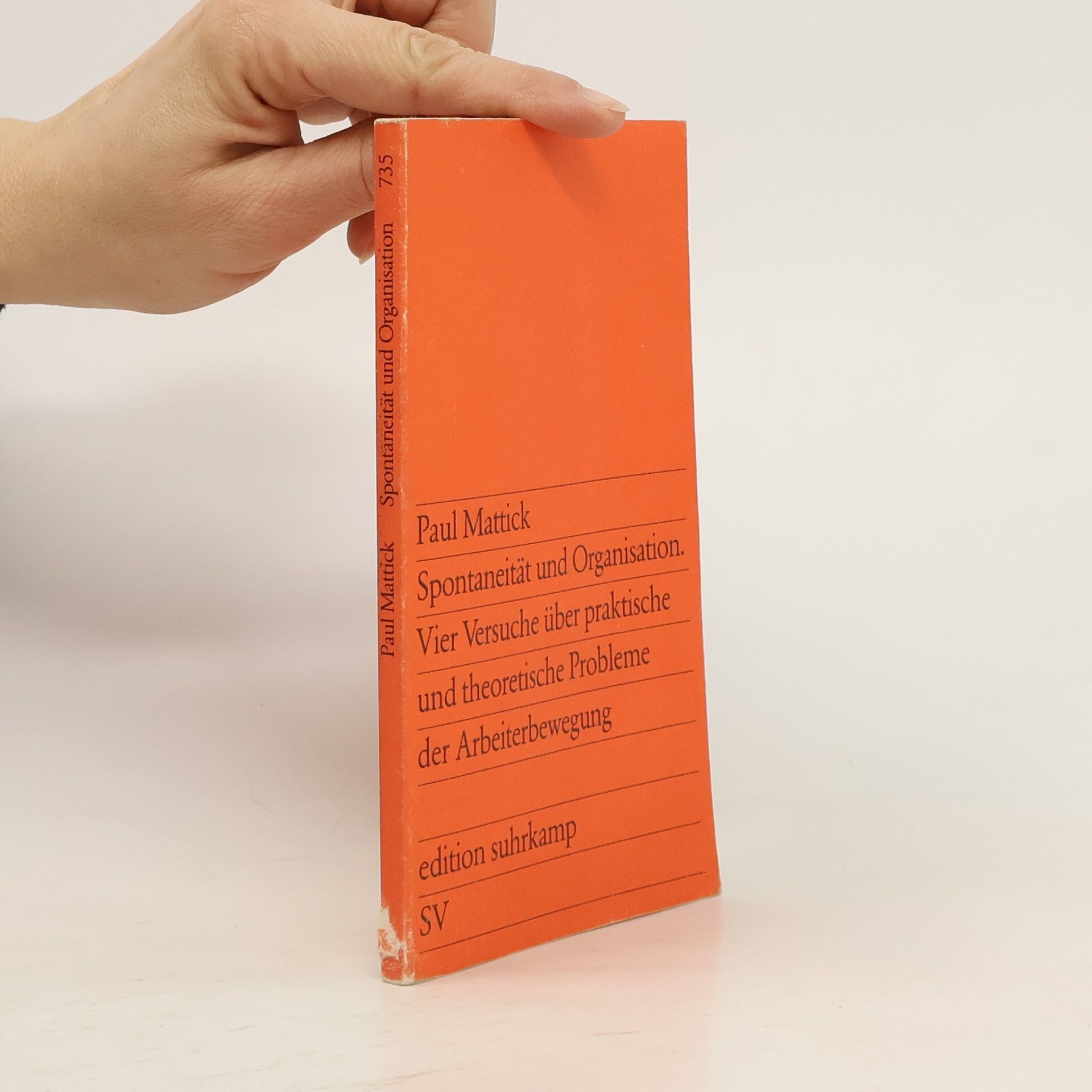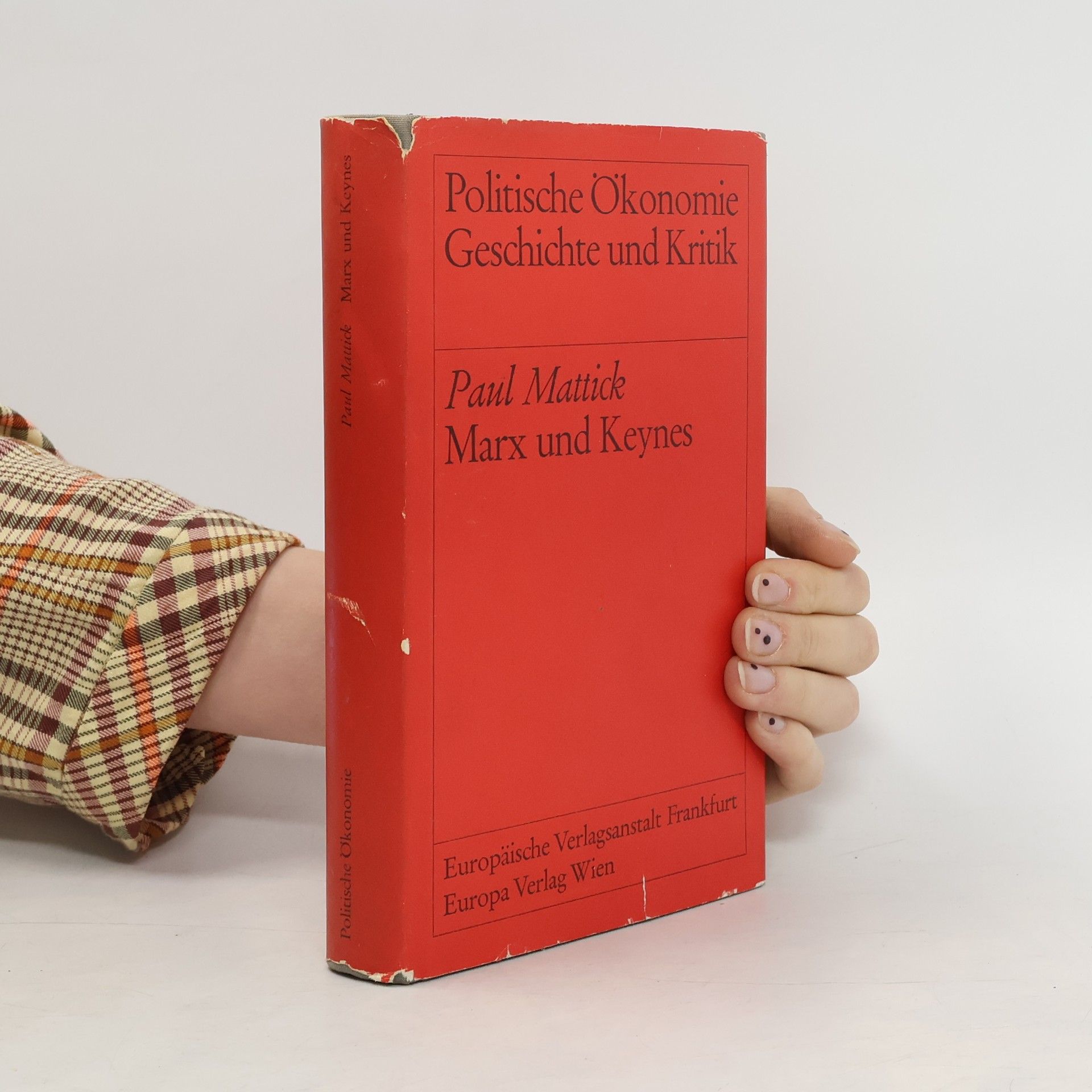In this new edition of his classic work, Paul Mattick argues that we can only develop scientific understandings of social life by subjecting the very categories of social science to rigorous study and critique.
Paul Mattick Libri
Paul Mattick Sr. fu uno scrittore politico marxista e rivoluzionario sociale, il cui pensiero si allinea con le tradizioni del comunismo dei consigli e del comunismo di sinistra. Il suo lavoro esaminò criticamente il capitalismo e analizzò le lotte di classe, enfatizzando la necessità dell'azione rivoluzionaria. Gli scritti di Mattick offrono profonde intuizioni sui fondamenti teorici e le esperienze storiche dei movimenti comunisti di sinistra. I suoi contributi rimangono significativi per comprendere le prospettive alternative sulla trasformazione socialista.

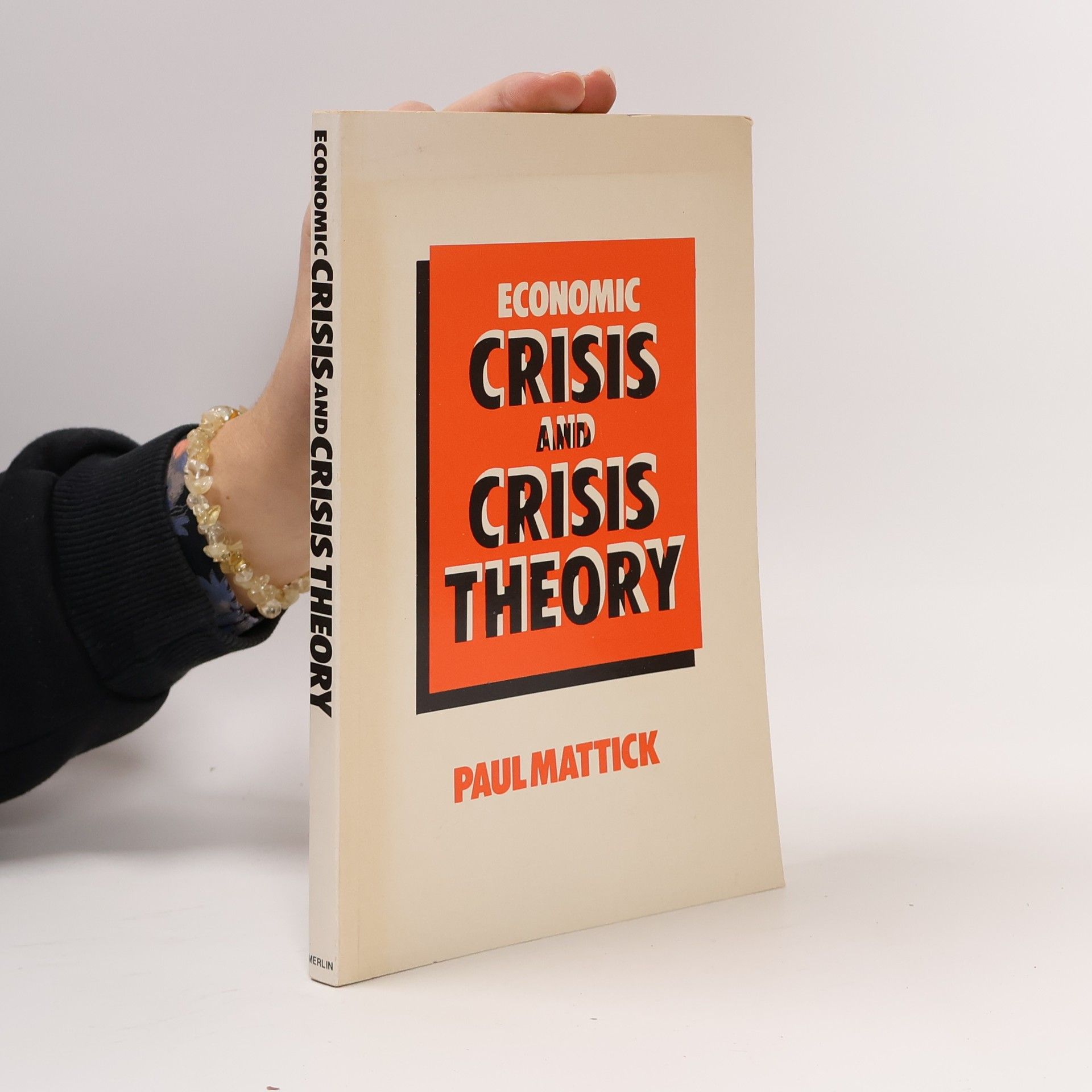
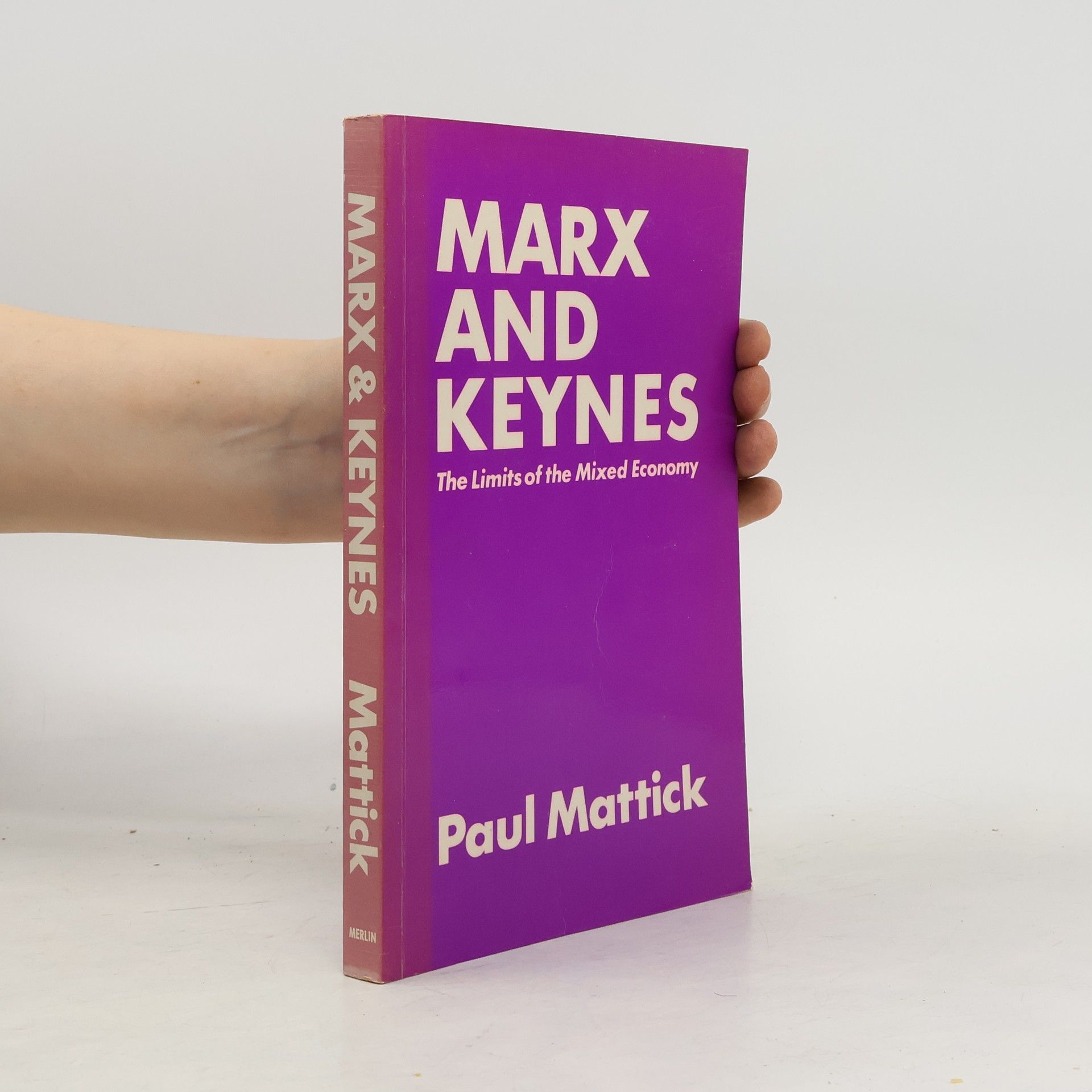

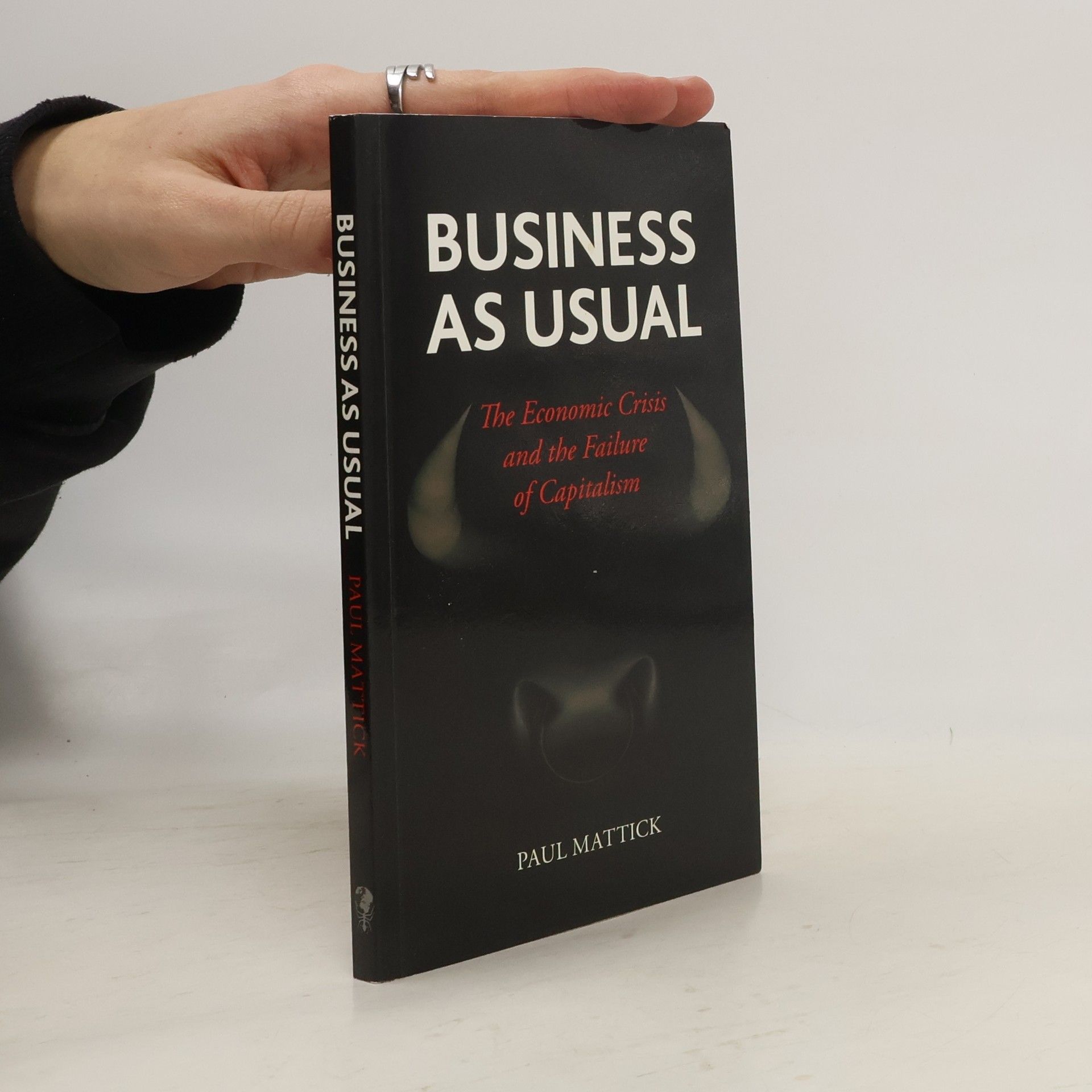

The recent global economic downturn has impacted nearly everyone worldwide, making it challenging to identify its exact cause. While some economists attribute it to risks in the modern financial system, others point to long-term imbalances. Paul Mattick addresses this debate by examining the downturn in relation to the world economy's development since World War II and as a key example of the cyclical nature of crisis and recovery in capitalism since the early nineteenth century. He argues that today’s recession is not due to a single financial event but rather a result of long-term processes within the world economy. Understanding the downturn within the context of unavoidable business cycles in a free-market economy is crucial. This perspective serves as a foundation for exploring the nature of our capitalist society and its future prospects. While engaging with various economic theories, Mattick’s accessible writing allows non-specialists to grasp the current economic climate as a reflection of the broader social and economic system. Consequently, this work is perfect for anyone seeking a clear, jargon-free understanding of recent economic events and the fundamental dynamics of capitalism.
A concise, jargon-free explanation of inflation past and present, and the world economy today.
Economic Crisis and Crisis Theory
- 220pagine
- 8 ore di lettura
In this volume, international experts analyse the politics of conventional military policy and military relations among the Soviet successor states. The work analyses various national perspectives on security and approaches to military affairs.
Beiträge zur Kritik des Geldes
- 274pagine
- 10 ore di lettura
Spontaneität und Organisation
- 126pagine
- 5 ore di lettura
